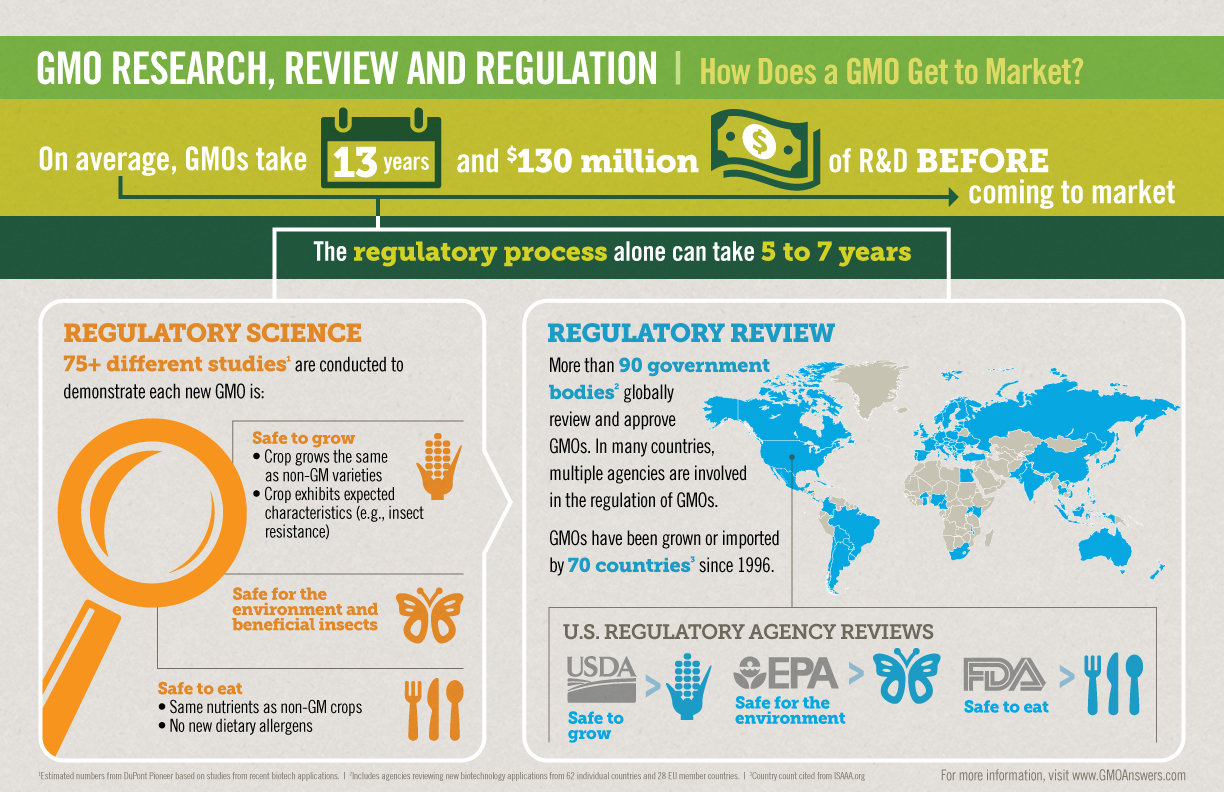Question
what if i cant buy organic or nonGMO items? am i safe by just avoiding modified ingredients?
Submitted by: Karla535
Answer
Expert response from Community Manager
Moderator for GMOAnswers.com
Tuesday, 07/07/2015 10:01
In the United States, consumers have several options to purchase non-GMO food items. There are only ten crops currently available as GM varieties in the U.S., including corn (field and sweet), papaya, canola, cotton, alfalfa, sugar beets, summer squash, as well as apples and potatoes, which are approved to be grown but not yet available in stores.
However, to answer your question about safety, you might be interested in this response from Dr. Xiaohua Yang, postdoctoral research fellow at Cornell University, who discusses how consumers can be certain that foods derived from GM crops are safe for human consumption. She explains that “before GM crops can be released into the market, they are tested in ways that conventional and organic crops are not. During the development of a new GM seed, safety testing is done largely by certified independent third-party laboratories using protocols required by the government. If a study were ever to yield a result that raised any food safety concern, it is required by law that the information be presented to the FDA. GM crops are also tested for their safety as feed and in the environment and regulated by authorities, such as USDA and EPA.”
This infographic has additional information on the safety testing each GM crop undergoes before it can come to market:

If you have any additional questions, please ask.
Answer
Expert response from Community Manager
Moderator for GMOAnswers.com
Tuesday, 07/07/2015 10:01
In the United States, consumers have several options to purchase non-GMO food items. There are only ten crops currently available as GM varieties in the U.S., including corn (field and sweet), papaya, canola, cotton, alfalfa, sugar beets, summer squash, as well as apples and potatoes, which are approved to be grown but not yet available in stores.
However, to answer your question about safety, you might be interested in this response from Dr. Xiaohua Yang, postdoctoral research fellow at Cornell University, who discusses how consumers can be certain that foods derived from GM crops are safe for human consumption. She explains that “before GM crops can be released into the market, they are tested in ways that conventional and organic crops are not. During the development of a new GM seed, safety testing is done largely by certified independent third-party laboratories using protocols required by the government. If a study were ever to yield a result that raised any food safety concern, it is required by law that the information be presented to the FDA. GM crops are also tested for their safety as feed and in the environment and regulated by authorities, such as USDA and EPA.”
This infographic has additional information on the safety testing each GM crop undergoes before it can come to market:

If you have any additional questions, please ask.